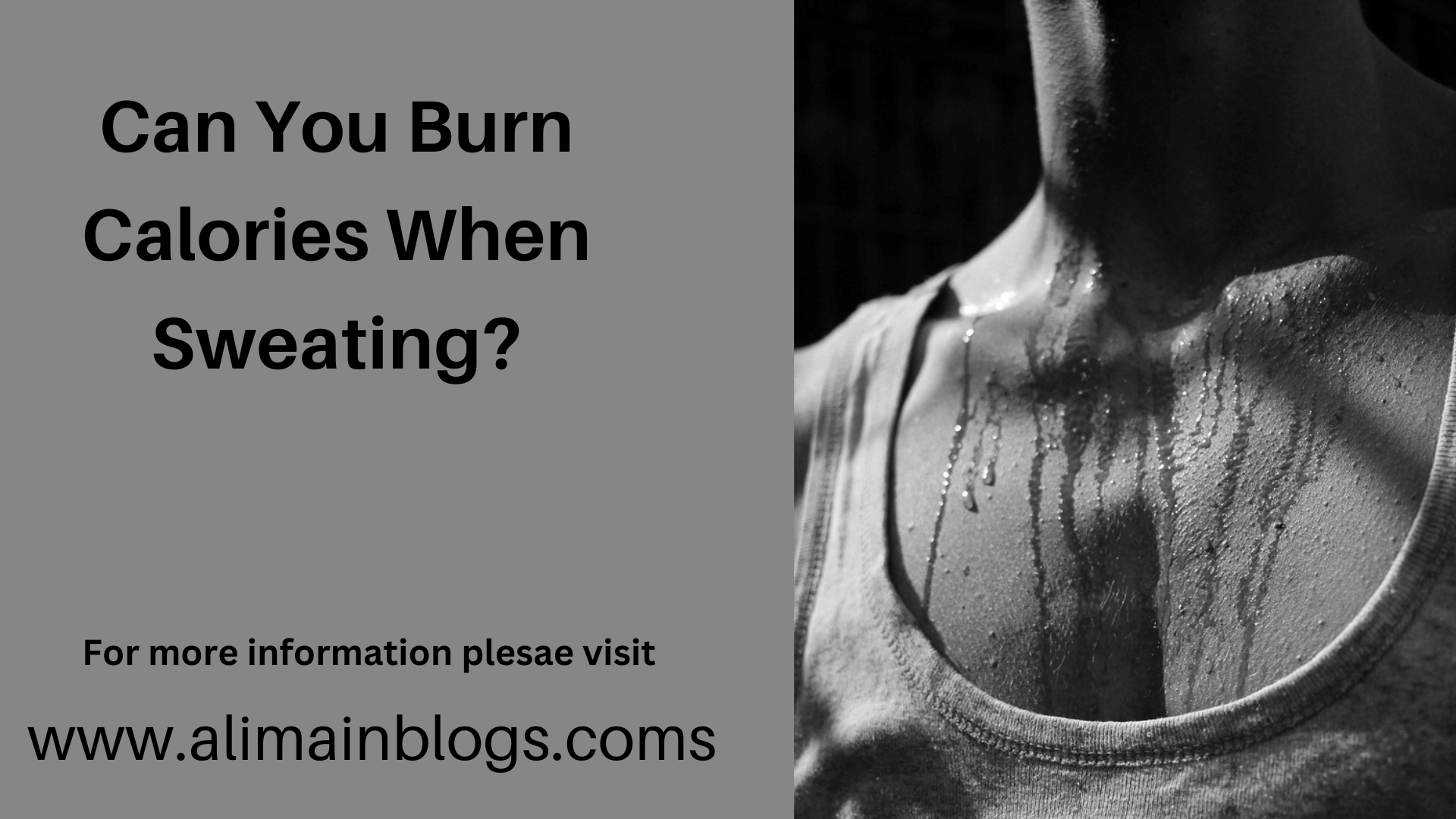Can You Burn Calories When Sweating? After a challenging workout, you’re drenched in perspiration. Does this suggest you’re burning more calories than usual? It sort of makes sense; excessive perspiration indicates that you are exerting yourself, which uses up extra energy. But does perspiration actually expend calories? Health consulted the specialists to explain the science and obtain the solutions.
Why Do People Sweat?
Let’s start by discussing the function of sweating: Your body produces perspiration to prevent overheating, not to burn calories. According to Thad E. Wilson, Ph.D., a professor in the physiology department at the University of Kentucky College of Medicine, sweating is how the body cools itself during exercise or other heat stress. The study of Dr. Wilson’s sweat glands and blood flow in the skin.
Exercise by itself doesn’t cause you to sweat, despite what you might think, especially if you’re in the middle of an HIIT workout, according to Dr. Wilson. Instead, activity causes a rise in body temperature, which eventually signals to your body that it is time to sweat to cool down.
Greater Perspiration Does Not Equal Higher Caloric Burn

In general, sweating has little impact on how many calories you burn. According to Dr. Wilson. it is true that some energy is required for the physical transit of the ions that enable water to enter glands and be released as sweat. In other words, sweating requires some energy, but not enough to significantly alter how you feel or how much you weigh.
According to exercise specialist Gabbi Berkow, a qualified personal trainer with an MA in exercise physiology, sweat is merely a sign that your body has shed water, not body fat.
Calorie burn occurs generally during physical exertion. According to Dr. Wilson, the more vigorously you engage your large muscle groups, the more calories your body will burn and heat (and perspire).
Compared to a weight-training activity, this calorie burn is greatest during an aerobic exertion.
1 Yet, you might need to towel off less if you’re doing out with weights or in intervals and taking breaks in between sessions. That only indicates your body temperature didn’t rise as much, not that you didn’t get a decent workout, burn calories, or gain strength, explained Berkow.
Calorie burn cannot be accurately determined by how much you perspire. According to Berkow, excessive perspiration does not always indicate a good workout. “A lot of sweating indicates that your body.
Everybody perspires differently.

It doesn’t really matter if you’re perspiring so much you could clean the floor while your pal is hardly gleaming. The ability to sweat varies greatly amongst people, according to Dr. Wilson. If you’re used to hot temperatures, you’ll probably start sweating more because your body is more adept at cooling itself. Likewise, different temperatures cause different persons to begin perspiring.
Remember that the body can occasionally perspire excessively, as is the case for persons who have hyperhidrosis, a medical disease, according to Yale Medicine. When the body’s two to four million sweat glands are overactive, hyperhidrosis results in copious sweating when other people only lightly perspire (if at all). Even when the temperature is cool or there is little physical activity, people with the syndrome nevertheless sweat a lot. A healthcare professional can assist in determining the best courses of action.
Test It Out
Still not convinced? Here is an investigation: If you go for a walk at 2 p.m. on an unseasonably warm day in the sun, you’ll probably perspire more than if you go for the same walk at the same time in the dark and cold. Yet, you’ll still burn around the same number of calories.
Keep an eye on your heart rate if you really want to know how challenging or tough your workout is. That may require specialised tools, such as a heart rate monitor, fitness tracker, or app.
According to Medline Plus from the National Library of Medicine, you can check your pulse rate at the wrist or the carotid artery in your neck to keep an eye on your heart rate. To calculate the heart rate in beats per minute, count your heartbeats for 10 seconds and multiply the result by 6.
If you don’t have access to those, Berkow advises measuring your rate of perceived exertion (RPE). You simply provide a difficulty rating of 1–10 to the workout. Although you won’t have exact figures, you will be able to compare several workouts and get a sense of when you are pushing yourself harder than normal and when you are taking it easy.
————————————
Q&A
Does perspiration indicate fat loss?
The internal cooling process is a clue that you’re burning calories even though sweating doesn’t burn fat. According to Novak, the main reason we perspire while exercising is because the energy we waste heats up our bodies internally. So long as you exercise vigorously enough to sweat, you will also burn calories.
Does sweating help you lose tummy fat?
Does perspiring cause fat to be burned? Regrettably, no. Yet, sweating might be a reliable sign of calorie and fat burn. Exercise usually causes you to sweat because it speeds up your metabolism.
————————————————–
FOR MORE INFORMATION PLEASE VISIT: alimainblogs.com
